Support excellence is the achievement of the maximum positive impact on profitability and reputation of the company, product or brand being supported through the efficient and effective delivery of Customer Support services.
The Business Impact of Support
The return on the investment companies make in providing technical support is difficult to quantify. This is because the work product of a technical support organization is difficult to connect to measurable business outcomes. For example, responding to more customer issues does not necessarily translate to more revenue and satisfying customers with each service interaction does not guarantee that customers will continue to be loyal.
For Support to maximize its contributions to the business it must connect the impact of its efforts to strategic performance indicators such as revenue, profit or the strength of the brand being supported.
Measure support success based on the speed and rate of product adoption, extent of customer success and the ability to sustain long term profitable relationships. Develop goals, practices and measurement techniques to align support activities to business performance outcomes.
Support Excellence Defined
If you ask ten Support executives how they define technical support excellence you will get ten different definitions, similar perhaps, but all with a slightly different themes and performance indicators. This is not to suggest that every Support organization must embrace the same definition for excellence but there must be a common framework by which we establish standards for support excellence.
Support Excellence does not require that every customer is delighted with every service transaction or that Support achieves a perfect Net Promoter or Customer Satisfaction score. Excellence means that Support has defined and achieved the optimal level of performance and impact from Support delivery given current investment levels in Support and its dependencies on other organizations within the company.
- Profit
- Reputation
- Efficiency
- Effectiveness
These four elements hold Support to account for its impact on strategic business performance indicators including financial (costs and revenue) and customer satisfaction outcomes. For Support to set and meet both financial and customer satisfaction goals service delivery efforts must be efficient and effective.
Profit
Key Metrics: Support Profit, Cost per Case, Cost of Support, Support Revenue
Profit is a primary objective of businesses and Support plays a role in contributing to profitability. This is not to suggest that the Support organizations must be managed as a profit and loss center – most are not – but it does imply that the Support must be held accountable to the costs of and benefits from support delivery. Accounting for the return on investment made to deliver technical support will rely partly on Support’s financial management model.
Although Support may affect many of the factors that contribute to profitability (e.g. delivery costs and contract renewal rates) it is not fully in control of its own destiny. Most support organizations provide support for products they do not develop. An excessively high defect rate for a product, a poor sales process or PS engagement (direct or by partners) can create disruption to the methods by which support operates.
Reputation
Key Metrics: Net Promoter Score, Customer Satisfaction
Support can affect customer perceptions about products, brands, and companies. A favorable impact from Support will positively influence customers’ likelihood to purchase a new product, renew and existing relationship and/or recommend a product to someone else. Failure to provide sufficient peace of mind or deliver adequate support for a product will negatively influence customers’ likelihood to purchase a new product, renew and existing relationship and/or recommend a product to someone else.
Efficiency
Key Metrics: First Contact Resolution, Time to Resolve, Cost per Case
The goal of Support is to be as efficient as possible. Support is labor intensive, so any inefficiencies can be costly. Support efficiency is directly related to support costs. More efficient support organizations can do more than inefficient groups. Efficiency can be measured by the attainment of the amount of support output (e.g. cases handled, knowledge created, contracts sold and renewed, etc.) for the level of effort expended to achieve it. Inefficient support organizations suffer from low levels of support outcomes due to process, technology, staffing or skills deficiencies.
Effectiveness
Support must be effective. The ability to provide timely, quality answers to customer issues is the essence of support’s mission and a primary factor in driving customer satisfaction, retention and relationship growth. Effectiveness of response – speed and quality of answers – must be achieved efficiently.




